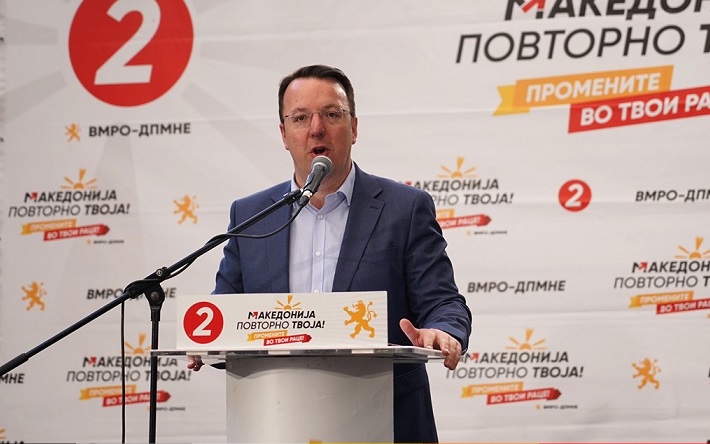VMRO-DPMNE vice-president and candidate for Minister of Transport, Aleksandar Nikoloski, said Thursday that the first three projects he would focus on after taking office are the Ohrid-Kichevo highway, the Gradsko-Prilep expressway and the Otinja dam, which, he noted, is extremely important for the eastern region.
“Citizens expect answers to two questions, namely – the Gradsko-Prilep expressway, which connects Pelagonia and Central Macedonia with the rest of the country, and that is something that I will have an insight into first. The second thing, also a top priority, is the Ohrid-Kichevo highway, which has been stopped for years and is not being constructed. We will see why this is so and what can be done. The third priority is the construction of the Otinja dam, which is extremely important for the eastern part of Macedonia,” Nikoloski told Kanal 5 TV.
As regards the contract with the “Bechtel and Enka” consortium on the construction of Corridors 8 and 10D, Nikoloski said he believes that the contract should be published. Regarding the content of the contract, he added that the institutions will review it accordingly to see whether additional sections can be negotiated or discussed.
“I don’t know under which law it is classified as a state secret. Regarding the content of the contract, when we enter the institutions, we will review it accordingly and see what Macedonia can get from this contract. Is it possible to further negotiate or discuss additional sections that can be constructed, so that Macedonia would get more kilometres of highways and expressways that would better connect the citizens,” Nikoloski said.
He pointed out that they will try to optimize within the funds provided, so that the citizens get the most of the contract.
As regards Bulgaria, he stressed that there will be no constitutional amendments under Bulgarian dictate and that Bulgaria should fulfil its obligations to the European Court of Human Rights and guarantee that there will be no further vetoes.
“Regarding the Negotiating Framework, we’ve said that none of us is looking to change the Negotiating Framework. We demand that Bulgaria respects its obligations and, second, we will not make constitutional changes under Bulgarian dictate. If the EU thinks that Macedonia should negotiate and become a member, there are many mechanisms it can use to make Bulgaria withdraw the veto, if it thinks that we should not negotiate, then we will not negotiate, and we will develop the country independently,” said Nikoloski.





Comments are closed for this post.